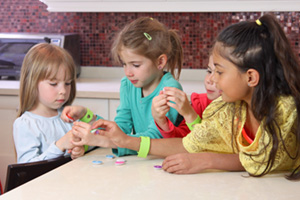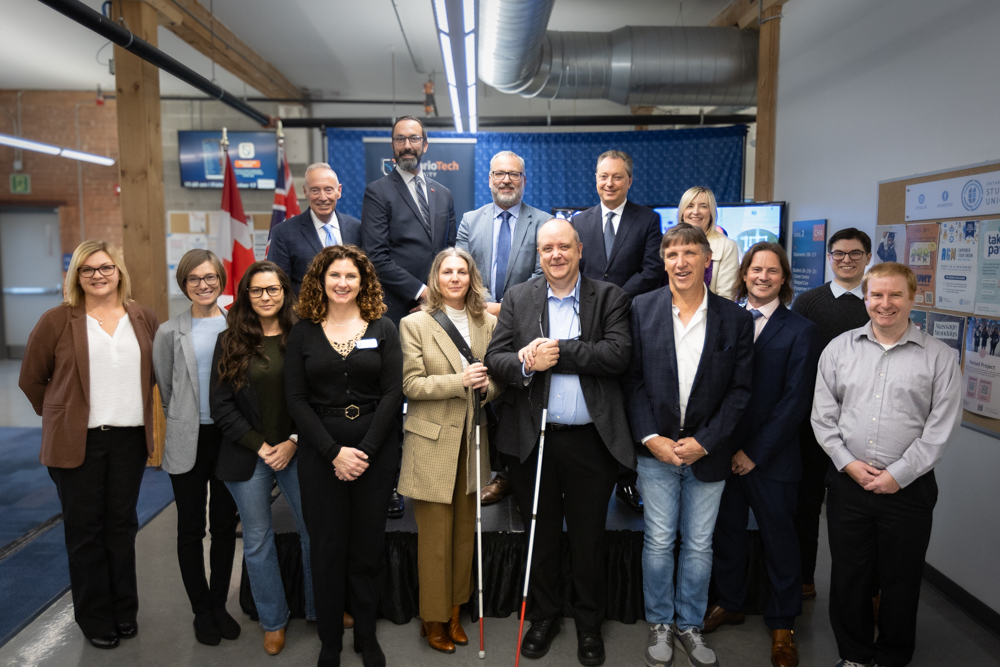UOIT research partnership to examine wearable technology through children’s eyes
May 22, 2015

The Decimal Lab at the University of Ontario Institute of Technology (UOIT) has partnered with Linkitz, a Port Hope, Ontario-based startup, to research the future of wearable technology from a child’s perspective.
“We’re undergoing a rapid cultural turn toward wearable computerized devices and schools are not necessarily able to keep pace”, said Dr. Isabel Pedersen. “Through our research we aim to learn how young children understand personal technology in terms of story-making and story-telling amongst peers, and alone as solo participants.”
Dr. Pedersen, Canada Research Chair in Digital Life, Media and Culture; Director, Decimal Lab; and Associate Professor, Faculty of Social Science and Humanities, UOIT, will lead the research. The first phase of the project, entitled Kids, creative storyworlds and wearables, will involve collaboration between professors and students from the university’s faculties of Social Science and Humanities and Education. They will use textual/visual analysis and ethnography in their research. They will examine how children between the ages of five and seven think and feel about technology, and how they envision where wearable technology is headed, as expressed in their stories about the future.
Linkitz, winner of the 2014 N100 Startup Competition, has developed an electronic toy that includes a set of links that can be snapped together and programmed to create an interactive wearable device. The toy is designed to help children – specifically young girls - learn about software coding. The company will apply the results of the research toward the development of their product.
“We’re tremendously excited to partner with the University of Ontario Institute of Technology’s Decimal Lab and gain valuable insight into what young children really think and feel about the emerging world of wearable devices”, said Lyssa Neel, CEO, Linkitz.
Recent media coverage of the partnership:
- CEO hopes new toy for young girls is a link to careers in STEM (Philly Voice)
- The wearable computer for little girls (Fast Company)



